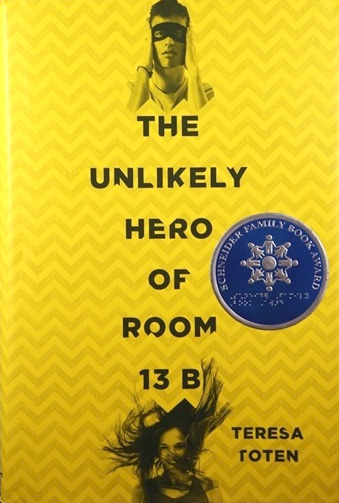 “It was as if they were two normal kids in love, sitting on a sofa in a warm living room, telling each other almost everything and sorting out the world with someone’s mom puttering annoyingly in the background. Except, of course, they weren’t two normal kids. Would never be.”
“It was as if they were two normal kids in love, sitting on a sofa in a warm living room, telling each other almost everything and sorting out the world with someone’s mom puttering annoyingly in the background. Except, of course, they weren’t two normal kids. Would never be.”
How often do we hear someone exclaim – “Oh I’m so OCD about that!” Maybe you commented on how clean their house was, or their neatly ordered DVD collection. Or maybe they gave you a coaster to put under the cup of tea. Often we laugh it off, sometimes we don’t, but either way this phrase has come to mean something very different from the clinical diagnosis of Obsessive Compulsive Disorder.
When we’re taught about mental health in school (if we’re taught about it), very little time is given over to the more specific ends of the spectrum such as schizophrenia, bipolar and OCD. Instead education tends to focus on the more general, and more common issues of depression and anxiety. So Teresa Toten’s book is a perfect way of educating yourself, not matter your age, and enjoying a damn good story at the same time.
The story centres around 15-year-old Adam –“Batman” – and the individuals in his OCD Support group who all take on the names of superhero’s after their therapists suggests thinking of an alternate identity for group sessions. There is Wonder Woman, Thor, Wolverine, and most importantly the lovely Robyn “Robin” with whom Adam falls hopelessly in love. It is the everyday story of boy meets girl which forms as a platform for exploring the bigger topic of the way mental illness effects our lives.
“On average that week, it took Adam approximately eleven minutes to entre 97 Chatsworth, and it was rising. He knew it was bullshit, just his stupid thoughts, it meant nothing, didn’t do a damn thing. Yet he felt the need to layer on ever-newer rituals in order to keep his mother safe, in order to feel “just right”.”
Interspersed with “lists” the book tracks Adam’s worries, goals, primary presenting compulsions and medication intake so that it becomes not only a story but an source of information on the various presentations of OCD and the ways of treating them. While Adam himself suffers from issues with “ordering, tapping, counting in head, [and] magical thinking re: thresholds”. The others in his group suffer from claustrophobia and hypochondria as well as the less spoken of issues of eating disorders and self-harm.
One of the most striking things about this book is the way that Toten is able to create the sense of total necessity that follows the various compulsions Adam has. While it is possible to theoretically know how OCD presents, The Unlikely Hero of Room 13B gives the reader an insight into the reality of living with OCD through exploring Adam’s feelings of constant anxiety, and allowing the story between Adam and Robyn to provide a background of familiarity for readers and a constant thread throughout the ups and downs of the novel.
“What would that be like? To wake up one morning and be normal? To not bite down and parcel out each second of each day. To not wrestle and negotiate with your obsessions. To not have thoughts that ran you into the ground.
To have a quite mind.
A quiet mind.
Quiet.
Shh.”
Overall Toten’s novel is a great way of gaining and improving your understanding of a complex mental illness that is not often talked about and often misunderstood. Whether you are reading it as an adult who has a good grasp on the issues, a teenager who strongly identifies with the protagonist, someone with a lived experience of OCD, or a parent wanting to educate yourself and your children everyone will take something away from this book. And while I would not call it “heart-warming” it is an enduring testament to the power of human connection and the importance of understanding that nobody is prefect and sometimes just being yourself is enough.
by Jean Roxon

